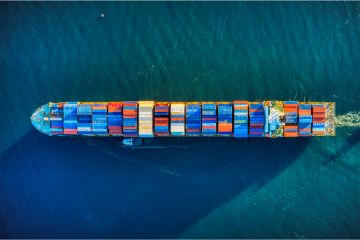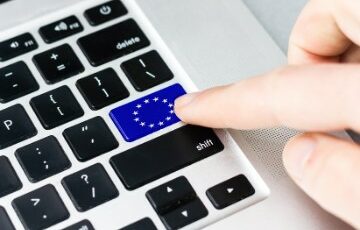
Product recalls in the Netherlands are a serious issue for businesses and consumers alike. Making sure that recalled products remain out of the marketplace is essential to preventing injuries, deaths, and financial losses. As such, it’s important to have an understanding of the legal aspects of product recall in order to ensure compliance with laws governing consumer safety. In this article, our attorneys in the Netherlands (Amsterdam) will explore what constitutes a product recall, who is responsible for the costs associated with them, and how they should be handled from a legal perspective. Our product recall lawyers in the Netherlands have the experience that you require.
Product recalls in the Netherlands occur when goods fail to meet their intended purpose or pose a risk to public health or safety. When this happens, manufacturers must take swift action by removing these items from shelves in order to protect both customers and their own reputation. The process involves identifying affected products as well as notifying distributors and retailers about the recall so that any remaining units can be pulled from circulation.
The responsibility for covering related expenses falls on the manufacturer since it was likely due to their oversight that the problem arose in the first place. This includes things like disposal fees for recovered stock as well as reimbursements for refunds given out to customers who purchased defective merchandise. There may also be fines incurred if regulations weren’t followed during production or distribution stages of the process. Going forward it’s critical that companies familiarize themselves with all applicable laws pertaining to product recalls in order to mitigate potential risks moving forward. Our attorneys in the Netherlands will explain the most important aspects.
Contact details
Martin Krüger | product recall lawyer in the Netherlands
+31 (0)20 – 210 31 38
martin.kruger@maakadvocaten.nl
product recall and Liability And Safety in the Netherlands
Product liability and consumer safety are two of the most important legal considerations when a product recall is initiated. Companies that produce or sell faulty products can be held legally responsible if their negligence leads to harm suffered by consumers. In many cases, manufacturers are found liable under strict liability laws which require no proof of fault in order for claimants to receive damages.
In addition to holding companies accountable for producing faulty products, there must also be procedures in place where they can acknowledge claims made against them regarding defective products and take appropriate action to address any potential issues with those goods. This could involve recalling particular items from store shelves, issuing refunds or repairs, or providing other forms of compensation for affected customers.
A company’s accountability does not end at taking responsibility for any problems caused by its products – it must ensure that all necessary steps have been taken to protect consumers from potentially harmful effects as well. This means having an effective system in place to identify and respond quickly to reports of defective goods and assessing the need for corrective measures such as recalls or warnings about hazardous materials used in production processes. With these safeguards in place, businesses can ensure that consumer safety remains top priority amidst product recalls and related legal disputes over faulty product claims. As we move on to consider regulatory requirements associated with product recalls in the Netherlands, it’s essential to remember the importance of maintaining high standards of accountability throughout the process.
Regulatory Requirements under Dutch law
In addition to liability and safety, understanding legal aspects of product recalls is critical for companies. Regulatory compliance with national consumer protection laws can help protect against potential civil action related to a recall. Companies must also be aware that product labeling requirements are constantly changing in response to new health concerns.
The following list outlines some key points about regulatory requirements under Dutch law:
- The company must be able to trace the products back through their supply chain
- All components of the recall process must comply with federal regulations
- Consumer complaints should be monitored closely by risk management teams
- Product labels must include accurate information about ingredients or warnings as required by law
Companies need to stay up-to-date on relevant regulatory changes, create comprehensive recall plans, and ensure all employees understand how to execute them properly. This helps minimize potential financial losses due to faulty or recalled products while maintaining customer confidence. Furthermore, effective communication strategies during a recall can make the difference between success and failure when it comes to protecting your brand reputation and avoiding long-term damage. With these considerations in mind, organizations can better prepare themselves for any eventuality involving a product recall. To mitigate risks further, next we will discuss risk management strategies.
product recall and Risk Management Strategies in Holland
Risk management strategies in Holland should be implemented to minimize the potential for product recalls. Companies must conduct a thorough evaluation of their product design and evaluate past class-action lawsuits in order to identify any existing flaws that could lead to further issues. Additionally, it is important to ensure that warning labels are visible and legible on all products, as this can help mitigate liability risks associated with recalled items.
The costs of recall procedures can also be minimized by having adequate insurance coverage in place prior to an incident occurring. This will help protect against losses resulting from unexpected expenses related to recalling flawed goods. It is wise for companies to regularly review their policies regarding product recalls, not only during the development stage but throughout the life cycle of each item they produce. Doing so ensures that appropriate measures are taken proactively rather than reactively when managing these types of incidents.
Furthermore, companies may choose to invest in techniques such as artificial intelligence or machine learning algorithms which enable them to detect patterns and anomalies within data sets which could indicate potential safety issues with certain products before they become available for purchase. By utilizing technology in this way, businesses can take steps towards avoiding costly mistakes caused by defective goods before entering into the marketplace.
Given the potentially devastating financial repercussions of product recalls, organizations should carefully consider implementing risk management strategies aimed at reducing liabilities and minimizing recall costs whenever possible. In taking proactive steps such as these, companies can better prepare themselves for dealing with future occurrences concerning recalled goods and services. With proper planning ahead of time, businesses stand a much better chance of success going forward while remaining compliant with relevant legal standards pertaining to product safety regulations.
Recall Processes in the Netherlands
Having discussed the various risk management strategies for product recalls, it is essential to consider the associated recall processes. In addition to developing a litigation strategy and notification requirements, companies must be aware of their reporting obligations as well as other legal considerations related to recalling products from the market. A damages assessment may also need to be conducted in order to determine how much financial compensation will be involved if necessary.
Product testing is invariably part of any effective product recall process in the Netherlands. This involves inspecting all recalled items before they are returned or destroyed, depending on what has been agreed upon by both parties involved in the action. Moreover, this should include an examination of whether there were any latent defects that caused damage or potential harm. This can help ensure that subsequent liability issues do not arise due to inadequate inspection protocols during the recall process itself.
When assessing legal responsibility with regards to product recalls, sufficient evidence needs to be gathered in order to properly assign fault and hold someone accountable. Companies should establish policies and procedures outlining who is responsible for covering certain costs such as fines imposed by regulatory bodies, refunds offered to consumers affected by the issue, and so forth. By taking these steps into account early on in the process, businesses can manage their liabilities more effectively and reduce any negative impacts resulting from a faulty product or service. With proper preparation, companies can better navigate through complex legal situations like product recalls when they occur and minimize disruption going forward. Here at last we arrive at assigning legal responsibility: determining who bears ultimate accountability for defective products which necessitate a full-scale recall effort
Assigning Legal Responsibility
When it comes to assigning legal responsibility for product recalls, the key players are typically manufacturers, vendors and consumers. Manufacturers have an obligation to produce products free of defects in materials or workmanship. If a company fails to meet this standard through negligence or recklessness, then they may be held liable for any damages resulting from their manufacturing defects.
The following points illustrate areas where liability can arise:
- Consumers may seek reimbursement policies from companies that offer them inadequate protection against defective products.
- Companies may be required to enter into settlement negotiations with injured parties who have filed suits against them due to their faulty products.
- Expert testimony may need to be obtained in order to establish corporate responsibility for consumer losses associated with recalled items.
It is clear that companies must take proactive steps in preventing the distribution of unsafe goods or face potential lawsuits related to product recall issues. As such, businesses should make sure they maintain strict quality control standards throughout all stages of production and regularly review their safety protocols as new technologies become available. By taking these measures, companies can help protect themselves against costly litigation stemming from faulty merchandise. With an eye on accountability and transparency, organizations can better mitigate risks associated with hazardous products and ensure customer satisfaction. This sets the stage for class action lawsuits involving multiple plaintiffs seeking damages from corporations over recalled items.
Class Action Lawsuits in Holland
Having discussed the assigning of legal responsibility in a product recall situation, it is important to consider class action lawsuits in the Netherlands as another potential consequence. Class actions are civil suits brought on behalf of many people with similar interests or grievances against an entity. These cases involve groups of consumers who have been injured by a defective product and wish to pursue damages for their losses together.
In addition to any reputational damage incurred by the defendant company during the recall process, they may also face significant exposure if customers choose to file a class-action lawsuit. A successful suit could result in monetary payments or other remedies being awarded to the plaintiffs. This can be costly both financially and reputationally, so companies should take steps to ensure that effective crisis management strategies, quality assurance procedures, and supply chain management protocols are implemented prior to a recall taking place.
Failure to do this can lead to litigation tactics such as class action lawsuits which can further amplify the economic impact of a product recall event. Companies must remain vigilant in order to mitigate these risks and protect themselves from any additional liability associated with recalls. As such, proactive measures should be taken throughout all stages of the manufacturing process – from design through distribution – in order reduce vulnerability and increase consumer confidence ahead of time.
product recall and Litigation Tactics in the Netherlands
When a product recall is necessary, companies must be prepared to face potential litigation. Litigation tactics are critical in determining the outcome of any product recall case. Here we will discuss four areas that should always be considered when preparing for a product recall lawsuit:
- Statute of Limitations – Companies involved in a product recall need to understand their state’s respective statute of limitations related to defective products and breach of contract claims; timely filing of such actions can mean the difference between success and failure.
- Choice-of-Law Provisions – It is important to note the applicable law governing any given dispute in order to ensure proper jurisdiction over the parties and validity of any agreements entered into by them. Choice-of-law provisions should be included in all contracts, as they provide clarity on which laws govern disputes arising out of those agreements.
- Expert Witnesses – When it comes time for trial, having an expert witness who understands manufacturing processes and other legal aspects related to product recalls may help prove or disprove certain elements of a claim against your business. Expert witnesses can also offer helpful insights into liability issues associated with recalled products, making them invaluable assets during litigation proceedings.
- Alternative Dispute Resolution (ADR) – In some cases, going through arbitration or mediation rather than traditional court proceedings may yield better results for both sides involved in a product recall lawsuit. ADR offers more flexibility when crafting solutions that take into account each party’s concerns, allowing for faster resolutions without sacrificing quality outcomes from either side’s perspective.
It is essential for businesses facing potential lawsuits due to product recalls to seek experienced legal counsel early on in order to navigate this complex area successfully. By considering these key factors before engaging in litigation, companies can protect themselves from costly judgments while maintaining trust among their customers and stakeholders alike. With this knowledge, businesses can confidently approach faulty product claims with confidence and assurance that their interests are best served under the circumstances at hand.
Faulty Product Claims
When a product has been recalled due to a defect, the manufacturer may be liable for damages resulting from their negligence. This includes any form of physical, emotional or financial harm caused by using the defective product. The basis of such claims is usually rooted in one or more legal theories such as warranty breach, strict liability and/or misrepresentation.
In order to successfully make a claim against the manufacturer, it is important to show that they were negligent in some way when designing, producing and selling the product. To do this, claimants need evidence of how the fault occurred and whether it could have been prevented through reasonable care on part of the manufacturer. Additionally, potential claimants must demonstrate that there was actual damage or loss incurred because of their use of the faulty product in order for them to receive compensation for their losses.
Claimants in the Netherlands should also keep in mind that statute of limitations may apply depending on each state’s laws and regulations; therefore it is best to act quickly if seeking to hold manufacturers accountable via civil litigation. Moving forward with faulty product claims can be difficult but those affected by defective products are not without recourse. Understanding these basics will help provide guidance on issues related to making a successful case against the responsible party. Ultimately, seeking professional legal advice early on can prove invaluable when pursuing justice in these circumstances.
Manufacturer defects can cause serious safety risks and lead to costly consequences – understanding what rights consumers have is essential in ensuring accountability within our society’s system of commerce.
Manufacture Defects
Manufacturing defects can lead to a wide range of product recalls. In some cases, the defect may be caused by negligence on the part of the manufacturer or a third party involved in the production process. It could also be due to poor quality control procedures that fail to identify potential issues during production. The most serious consequence of manufacturing defects is when an unsafe product reaches consumers and causes injury or death.
In order for manufacturers to protect their customers from harm, they must take all reasonable steps to ensure their products meet safety standards and perform as expected. This includes conducting regular inspections of raw materials and components used in manufacture, testing prototypes prior to market release, and providing adequate warnings about any known risks associated with use of their products. Manufacturers are also responsible for monitoring customer complaints related to their products, so they can quickly identify any problems that may exist and act accordingly.
When there is evidence that a manufacturing defect has impacted consumers’ health or safety, companies should recall affected items promptly and provide remedies such as refunds or replacements where appropriate. Such action will help demonstrate commitment to protecting customers while avoiding costly litigation down the line. Additionally, it’s important for organizations to review processes regularly in order to prevent similar occurrences in future products – this requires knowledge of applicable laws including consumer protection regulations designed specifically for product recalls.
Product design issues can present another set of challenges since faulty designs can have similarly dangerous consequences if not addressed appropriately.
Product Design Issues
When a product recall is initiated, the first step of inquiry typically involves examining the design elements. This includes an analysis of whether any inherent defects existed in either the original design or subsequent manufacturing process that may have caused harm to consumers. Additionally, it must be determined if there was a lack of compliance with existing safety standards and regulations as well as industry best practices. To this end, thorough research must be conducted into the history of similar products produced by competitors and other firms within the same market segment.
Furthermore, it should be ascertained whether warnings were provided on packaging materials or accompanying documents regarding potential risks associated with using the product. In some cases, manufacturers are required to provide detailed instructions for safe use along with appropriate cautions about possible adverse consequences when these protocols are not followed. If such information was absent from the product’s labeling or otherwise inadequately communicated, then legal action may ensue against those responsible for its manufacture and sale.
In moving forward towards establishing negligence considerations relating to product recalls, it is essential to evaluate all relevant factors which could possibly lead to liability on behalf of one or more parties involved in producing and marketing said item(s). Evidence should be gathered including internal communications between personnel related to development and testing processes along with customer feedback reports detailing any complaints received prior to launch date. With this data in hand, attorneys can begin their assessment of culpability under applicable laws governing consumer protection.
Negligence Considerations under Dutch law
Having discussed the importance of product design issues in recall situations, it is now necessary to consider negligence considerations under Dutch law. Negligence refers to a failure by one party to fulfill their duty that causes harm or injury to another. When determining whether a company is liable for injuries associated with its products, courts will look at several factors such as foreseeability and reasonableness of conduct.
Negligence can be established if the defendant breached a duty owed to the plaintiff and caused an injury due to that breach. The court must determine if there was a “reasonable care” standard applied when designing, manufacturing, distributing and marketing the product. In order for liability to attach, it must be shown that the manufacturer failed to take reasonable steps in ensuring that their product would not pose any foreseeable danger or risk of harm. This includes taking into account both physical hazards and potential misuse of the product by consumers.
The next step involves examining strict liability principles which impose legal responsibility on manufacturers regardless of fault or negligence when certain conditions are met.
Strict Liability Principles
Product recalls are governed by principles of strict liability in many jurisdictions. This means that a manufacturer is held liable for any damages caused by defective products, regardless of the amount of effort they have put into product safety or quality control. The following points summarize this concept:
- Manufacturers must ensure their products are safe and free from defects.
- They can be held accountable even if they did not intend to cause harm or negligence was present.
- Consumers may receive compensation for losses because of these laws, depending on the circumstances and jurisdiction.
Manufacturers should familiarize themselves with the relevant statutes that apply to them as well as potential defenses available under strict liability law so that they can adequately protect their interests when it comes to product recall incidents. Additionally, manufacturers should work proactively to create systems and procedures necessary to prevent problems before they occur rather than relying solely on legal remedies after an incident arises. By doing so, companies will be better equipped to manage risk related to product recalls while also avoiding costly litigation down the road.
The next step is understanding consumer protection regulations which govern how product recalls are handled in different jurisdictions and what obligations businesses have towards consumers when selling potentially dangerous items.
Consumer Protection Regulations
Having discussed the importance of Strict Liability principles in product recalls, it is also important to discuss consumer protection regulations. Consumer protection laws are designed to protect consumers from unfair or deceptive practices by businesses when selling products and services. These laws provide a legal remedy for aggrieved consumers who have suffered some type of harm as a result of a business’s negligence or misconduct. One such example would be false advertising claims made about a product that did not live up to its promises.
Consumer protection regulations can also be used to help ensure that recalled products are properly identified, tracked and monitored throughout the recall process. For instance, manufacturers must provide clear instructions on how customers should dispose of recalled products, as well as details regarding any refunds they may receive if they choose to do so. Additionally, companies must notify all affected customers within 24 hours of issuing a recall notice, explaining why their product has been recalled and providing detailed information on what steps need to be taken in order to obtain a refund or replacement item.
In addition, customer service representatives must remain available to answer questions during the entire recall period so that customers can easily access assistance with any issues related to their purchase. It is also critical for companies to make sure that all returned items are appropriately disposed of or recycled in accordance with applicable environmental standards and regulations. By following these guidelines and adhering strictly to consumer protection regulations, companies can minimize potential damages associated with dangerous or defective products being sold in the marketplace. With this knowledge firmly established, we can now move on toward an understanding of labeling requirements associated with product recalls
Labeling Requirements
Product labeling is an important part of product recalls and can be used to identify a defective item. Companies must ensure that their products are labeled correctly in order to meet legal requirements, as well as consumer safety standards. Labeling should include all relevant information regarding the product such as name, manufacturer, ingredients and contact details for further assistance.
In addition to basic labeling requirements, companies may also need to provide additional warnings or instructions on how to safely use or dispose of the product if it poses any health risks. These warning labels should be placed prominently on containers or packages so they are easily visible and recognizable by consumers prior to purchase. Warnings should also be written clearly with no ambiguity, using language appropriate for the intended audience.
It is essential that manufacturers take every precaution necessary when creating product packaging; failure to do so could result in severe penalties or other forms of liability under applicable laws or regulations. To avoid this risk, proper labeling practices should always be followed when manufacturing products which are subject to recall procedures. With effective labeling strategies in place, companies can reduce their potential liabilities associated with product recalls and protect both themselves and their customers from harm.
The next section focuses on warning standards which must be adhered to during a recall process.
Frequently Asked Questions
What Are The Legal Consequences Of Issuing A Product Recall?
When a company issues a product recall, there are significant legal implications that must be taken into consideration. Product recalls typically occur when it is determined that the item in question could cause harm to consumers or poses some type of safety risk. As such, it’s important for companies to understand the potential legal consequences prior to making any decisions about issuing a product recall.
Firstly, companies may be liable for damages caused by their products if they have failed to properly warn customers and the public of the danger posed by their items. Companies can also face civil penalties from governmental authorities for failure to comply with any applicable laws related to product safety recalls. Additionally, criminal prosecution may follow if an investigation reveals negligent behavior on behalf of the company leading up to or after a product recall announcement has been issued.
The cost associated with conducting a successful product recall can often be considerable as well – ranging from costs associated with repairing or replacing affected units all the way through paying hefty fines imposed by regulatory bodies depending on how severe the breach was. In addition, many organizations find themselves facing reputational damage due to negative publicity surrounding product recalls which in turn can lead to lost sales and customer loyalty over time.
In order to protect both themselves and those who use their products, companies should ensure compliance with all relevant regulations regarding product safety before releasing new products onto the market and take appropriate action swiftly should any faulty items surface during regular operations.
What Is The Best Way To Handle A Product Recall Financially?
When issuing a product recall, it is essential to understand the financial implications of such an action. Knowing the best way to handle a product recall financially can save money and mitigate potential losses. Here are five key considerations when deciding on how to manage the costs associated with a product recall:
- Understand what type of expenses will be incurred in order to carry out the recall (e.g., refunding customers, disposing or replacing products).
- Consider possible legal ramifications for failing to take corrective action after discovering that a recall is necessary.
- Determine if there may be any insurance coverage available to cover some of the costs related to the recall.
- Develop strategies for minimizing long term effects by including appropriate language in customer agreements and contracts.
- Calculate amount needed in reserve funds prior to initiating a recall so as not to jeopardize cash flows during this process.
Having an understanding of these factors before proceeding with a product recall can help businesses minimize their financial risk and remain compliant with laws governing such actions. It’s also important that companies have sound accounting practices in place which enable them to accurately track all relevant expenditures associated with the recall process. Furthermore, having detailed records of all transactions enables organizations to more effectively identify areas where additional cost savings could be realized going forward.
Successfully managing the financial aspects of product recalls requires thoughtful planning, comprehensive knowledge of applicable regulations, and timely execution. Taking into account both short and long term impacts ensures that companies are able to successfully navigate through this often complex process while still maintaining profitability over time.
How Can I Protect Myself From A Potential Class Action Lawsuit in the Netherlands?
When it comes to product recalls, the possibility of a class action lawsuit should not be taken lightly. If you are responsible for the recall process, there are certain steps that can be taken in order to protect yourself from potential legal ramifications:
- Ensure the recall is conducted efficiently and effectively – conducting a thorough investigation into why the recalled item failed and creating an appropriate plan to address any issues uncovered.
- Comply with all applicable laws when issuing a recall notice – this means being aware of consumer protection statutes, product safety regulations, or other relevant legislation related to your product or industry.
- Document all aspects of the recall process – create detailed records which include information such as who was notified, what remedial actions were taken, how long they took, and so on. This will help prove that you have acted responsibly if a lawsuit arises later down the line.
- Have insurance coverage in place before the recall occurs – having an insurance policy designed specifically for product liability is key here as it can cover both compensatory damages (awarded to claimants) and punitive damages (assessed against companies).
It’s also important to stay up-to-date on current case law surrounding product recalls; knowing where similar cases have been successful or unsuccessful may give insight into possible outcomes of any future lawsuits filed against you or your company. Additionally, enlisting professional legal advice early on in the event of a potential class action suit would likely be beneficial too; experienced lawyers will know how best to navigate these complex situations and ensure that you are adequately protected throughout proceedings. Taking these proactive steps now could save time and money in the long run by helping avoid costly litigation fees further down the road.
Can A Product Recall in the Netherlands Be Reversed?
When it comes to product recalls, many consumers may be wondering if a recall can be reversed. This is an important question as reversing a product recall in the Netherlands could have major implications for both the company and its customers. Fortunately, there are some steps that companies and individuals can take in order to explore their options when it comes to reversing a product recall:
- Consult with legal professionals who specialize in products liability laws.
- Research state or federal regulations related to product recalls.
- Read any relevant court decisions from similar cases involving product recalls.
- Reach out to the manufacturer of the recalled item for additional information about potential reversal strategies.
Understanding the legal landscape surrounding product recalls is essential for those looking into possible reversal strategies for a particular case. Companies must ensure they comply with all applicable laws when considering such actions, since failure to do so could result in significant penalties or even criminal charges. It’s also important to note that certain types of items may be more likely than others to qualify for reversal due to differences in safety standards and other factors, so consulting with an experienced attorney on this matter is highly advised.
Businesses should also consider how reversing a recall might affect public opinion regarding their brand and reputation, which can often lead long after a single incident has been resolved. In addition to taking proactive measures like engaging customer feedback channels or conducting market research surveys, businesses should factor any associated risks into their decision making process before attempting to reverse any previous action taken by them or another party concerning the affected products.
What Are The Common Causes Of Product Recalls?
Product recalls are a serious legal matter that can have negative financial and reputational implications for companies. As such, it is important to understand the common causes of product recalls in order to avoid them. A recall occurs when a product fails to meet safety or quality standards, which may be due to design flaws, manufacturing errors, inadequate labeling, contamination with foreign objects or substances, or other unintended issues.
In terms of design flaws, many products fail at the initial stages of development because they do not adhere to industry regulations. This could include failing tests related to performance capability and user safety. Likewise, manufacturers must ensure their production processes comply with all relevant requirements and legislation; if this is not done correctly it can lead to defective parts that need recalling. Additionally, labels should provide clear instructions on how a product should be used as well as any warnings related to potential hazards so that consumers are aware before using the item.
Finally, foreign objects and contaminants can also trigger a recall if found inside a product after manufacture. Contamination might occur during storage or transportation if items come into contact with an unsuitable material – for example foodstuffs becoming contaminated by pests or hazardous chemicals entering the supply chain from third-party suppliers. These issues can arise through negligence but more often than not happen unintentionally due to lack of oversight across multiple stages of production and distribution.
Understanding what constitutes a product recall is paramount for businesses who wish to protect their reputation as well as remain compliant with consumer protection laws. It’s necessary then for firms producing goods and services to maintain rigorous control over their operations in order to minimize risk associated with these types of events occurring in the first place.
Contact our product recall lawyers in the Netherlands
The legal aspects of product recalls in the Netherlands are complex and can be difficult to navigate. Therefore, our product recall lawyers in the Netherlands are happy to guide you in Holland. It’s important for companies to understand the possible consequences, financial implications, and potential protection from class action lawsuits when issuing a recall. The most common causes of product recalls include defects in design or manufacture, contamination with foreign bodies, incorrect labeling or inadequate instructions, as well as failure of safety tests.
It is not always possible to reverse a product recall, however there may be steps you can take to minimize the negative impact on your business. This could involve offering refunds or replacements, providing additional information about safe usage practices, or working with regulatory agencies to improve standards and ensure compliance with current regulations.
Ultimately, it’s essential that businesses remain vigilant and have appropriate contingency plans in place if they ever face an issue which necessitates a recall. By understanding the legal ramifications involved, businesses will be better prepared should a situation arise where a recall is required.






